Archive | Environment RSS feed for this section
Environment, Industry and trade
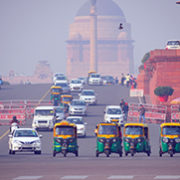 Economics, Environment, Industry and trade
Economics, Environment, Industry and trade
 Economics, Environment, Infrastructure, Population, Poverty, Social development and protection, Urban development
Economics, Environment, Infrastructure, Population, Poverty, Social development and protection, Urban development
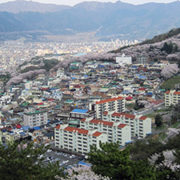 Economics, Environment, Finance sector development, Governance and public sector management, Industry and trade, Infrastructure, Regional cooperation and integration, Urban development
Economics, Environment, Finance sector development, Governance and public sector management, Industry and trade, Infrastructure, Regional cooperation and integration, Urban development
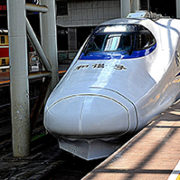 Economics, Education, Environment, Health, Population, Social development and protection, Urban development
Economics, Education, Environment, Health, Population, Social development and protection, Urban development
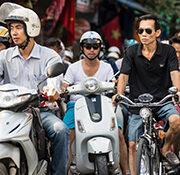 Energy, Environment, Governance and public sector management, Infrastructure
Energy, Environment, Governance and public sector management, Infrastructure
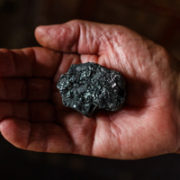 Economics, Energy, Environment, Governance and public sector management, Infrastructure
Economics, Energy, Environment, Governance and public sector management, Infrastructure
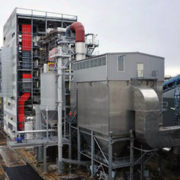 Environment
Environment
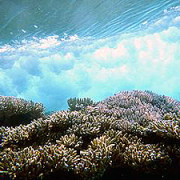 Energy, Environment
Energy, Environment
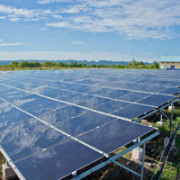 Environment
Environment
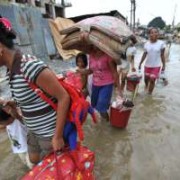
Globalization and the environment in India

India embarked on a path of liberal economic reform in the 1990s after years of nurturing an intensively regulated and controlled economic environment that was loosened slightly in the mid-1980s. The most important and critical segments of this reform were trade and foreign investment. India has felt the impact of globalization through increased prosperity, partly triggered by increasing trade volumes, investment, and growth.
International outsourcing, environmental costs, and welfare

In recent decades, amid the increasing trend of globalization, it has become prevalent in world trade that firms in some countries outsource intermediate and/or finished goods or services from other firms in foreign countries for the purpose of lowering production costs and increasing production efficiency.
Housing policy in the Republic of Korea

This article evaluates housing policy in the Republic of Korea over the past 5 decades or so, and describes new challenges arising from the changing environment. The most pressing housing problem in the early phase of development of the Republic of Korea was an absolute shortage of housing. The country addressed this problem with the pragmatic approach of engaging the market using government intervention as leverage.
The PRC’s international capacity cooperation exports both industrial capacity and financial risk

International capacity cooperation (国际产能合作guoji channeng hezuo) was a 2014 addition to the “Go Global” policy suite that the People’s Republic of China’s (PRC) central bureaucracy expanded throughout 2016. It is the result of seeking a way forward from “new normal” low industrial growth rates and is a novel solution to the industrial capacity utilization problems the PRC has suffered since the 2008–2009 spending stimulus flooded into traditional industries. Steel, cement, aluminum, paper, glass, and everything from pork production to robots are in 2017 mired in cyclical overcapacity.
Pointers from Asia for urbanization in Africa

Africa and Asia are latecomers to urbanization. In these two continents, less than half live in urban centers, while elsewhere, more than 70% of people do. But Africa and Asia are now rapidly urbanizing, with Asian cities growing at an average of 1.5% per year and Africa’s at 1.1% per year.
Propelling ASEAN towards clean coal technology

Coal, the most abundant and reliable energy resource, will continue to be the dominant energy source in power generation to meet the fast-growing electricity demand in the emerging economies of the Association of Southeast Asian Nations (ASEAN). The share of coal use in power generation was 32% in 2015, and this is projected to increase to 42% by 2040.
Electrifying emerging ASEAN through off-grid distributed renewable energy systems

Some 134 million people in the Association of Southeast Asian Nations (ASEAN) region do not have access to electricity (IEA and ERIA, 2013). At the end of 2015, the ASEAN Community declared that the lack of power and energy access could threaten the region’s economic growth and its economic transition.
Realizing the Paris Agreement: How can Asia manage the transition to a low-carbon economy?

As the world celebrates the Paris agreement, after 20 years of fraught meetings, its significance for the future development pathways of the emerging economies of Asia cannot be underestimated. Critically, it will increase the flow of additional public and private finance for vulnerable countries for both low carbon and climate resilient investments. Low-carbon green growth pathways toward a possible 1.5°C limit and 5-year reviews will be played out through the Intended Nationally Determined Contributions (INDCs).
Green investment in Asian cities: Lessons from the People’s Republic of China, Indonesia, and Japan

The concept of “green growth” has been connected to the “green economy for sustainable development and poverty reduction,” which is the first theme of the Rio+20 United Nations Conference on Sustainable Development (UNCSD). In addition, making cities and human settlements inclusive, safe, resilient, and sustainable is becoming one of the 17 sustainable development goals proposed by the Open Working Group on Sustainable Development Goals targeted to replace the United Nations Millennium Development Goals which will expire in 2015.
Window of opportunity still open on climate action

A set of reports by the Intergovernmental Panel on Climate Change (IPCC), the last of which was released on November 2, 2014, sets the scene for governments to renew their efforts on the issue through ambitious commitments for a comprehensive climate agreement in Paris in December 2015.


Search
Subscribe / Connect to Asia Pathways
Subjects
- Accelerating Progress in Gender Equality
- Addressing Remaining Poverty and Reducing Inequality
- Agriculture and natural resources
- Capacity development
- Climate change
- Economics
- Education
- Energy
- Environment
- Finance sector development
- Gender
- Governance and public sector management
- Health
- Industry and trade
- Information and Communications Technology
- Infrastructure
- Making Cities More Livable
- Miscellaneous
- Population
- Poverty
- Private sector development
- Regional cooperation and integration
- Sanitation
- Social development and protection
- Strengthening Governance and Institutional Capacity
- Subjects
- Transport
- Uncategorized
- Urban development
- Video Blog
- Water
Recent Posts
- Investing in Childcare a Win for Women and the Economy
- Flush and Flourish: Upgraded Toilets Can Transform Lives in Rural Asia
- New Ways for Climate Finance and Development in Asia and the Pacific
- Rethinking High-Rise Living: Balancing Urban Growth and Sustainability in Asia’s Cities
- Navigating Linear Transport Infrastructure Through Conservation Landscapes




Recent Comments